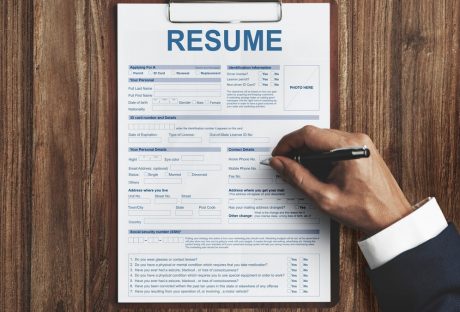Being in your interview room and expressing yourself is a cumbersome process. Well, only a few can handle the pressure with confidence. In the interview room, it is about your intentions and the tactics you follow.
Not everyone can deal with the pressured situation, and most of us fumble at times. This is where you need to excel in your performance. If you are a tough performer when you are in a pressured situation, that shows your capabilities to handle responsibilities and ensure a better position.
In this competitive market, working on daily tasks is not enough! Every organization would like to add a person to their workplace who can significantly impact the organization.
So, if you cannot add any extra value to the organization, there is no special importance of yours for the interviewer. Well, everything will depend on your presentation for the interview. From your dress to the confidence that you show, it will matter a lot during the interview.
If you are once selected, the rest will be in your hands to grab a special place and attention in the dedicated organization. So, everything starts from the interview room, and you must crack that!
Best Ways To Impress Your Interviewer
When it comes to landing your dream job, acing the job interview is crucial. And while having the right qualifications and experience is important, making a lasting impression on your interviewer is equally important.
Here, we will explore some of the best ways to impress your interviewer, from dressing appropriately to demonstrating your enthusiasm for the position.
By following these tips, you will be well on your way to standing out from the competition and securing your dream job.
Dress Appropriately
Your sense of dressing can make or break your interview session. How you dress up for the interview can significantly impact the interviewer’s perception of you. Showing up in a sloppy or casual outfit may indicate a lack of professionalism, which can negatively impact the interviewer’s impression of you.
However, if you present yourself with confidence and professional attire, it will showcase your intentions and seriousness towards the interview and the future job role. So, it is essential to dress appropriately for the interview and make a lasting positive impression on the interviewer.
Remember, the first impression is the last, and your attire plays a crucial role in making that first impression.
Prepare A Professional CV
Creating a proper Curriculum Vitae and writing everything that you must have in your CV is confusing. But you cannot deny the importance of a CV at any cost. If it’s an interview, then your CV is going to decide at least 50% of your future.
Unfortunately, writing a CV is not of the proper caliber for most of us. Experienced people also fail to create a complete top-to-bottom CV for professional purposes. Making the CV creative while following professionalism becomes hard for us.
If you are trying to make it happen, you will need to understand not just the basics but also have a clear idea of what makes a CV more accurate.
However, you are not alone in this mess!
And we have got you covered this time!
Considering a CV writing service may help you a lot in this case!
How?
Well, if you hire one, they will assign an expert behind your CV-making process. So, a skilled expert with loads of knowledge and understanding will ensure a professionally written CV while describing you at the best level possible.
Perfect Your Introduction
An introduction that packs a punch can make a huge difference in the interview room. Your introduction is the first impression that you make on the interviewer, and it sets the tone for the rest of the interview.
A strong and confident introduction can help you stand out from the competition, and it can demonstrate your enthusiasm and passion for the job. So, take the time to prepare and perfect your introduction, and make sure that it showcases your skills, experience, and personality in the best possible light.
Remember, a great introduction can set you on the path to success in the interview and beyond.
Read Also: 8 Easy Ways for Students to Improve Their Writing Skills
Use Body Language
During an interview, your body language can play a crucial role in setting the tone and creating a lasting impression on the interviewer. Your body language includes your posture, facial expressions, and gestures, and it can communicate a lot about your personality and confidence.
It’s important to be confident during an interview, but at the same time, you need to be careful not to show overconfidence. Overconfidence can come across as arrogance or false attention-seeking intentions, which can be a major turn-off for the interviewer.
Here are a few tips to help you maintain the right body language during an interview!
- Sit up straight
- Make eye contact
- Use hand gestures
- Avoid fidgeting
- Smile
Remember, your body language can speak louder than words, and the interviewer will always try to focus on it while assessing you.
So, make sure to maintain a confident and professional body language that aligns with your words and intentions.
Prepare Yourself For It
One of the most important things to do before heading into a job interview is to research the company you’ll be interviewing with. This can help you prepare better for the interview and impress your interviewer with your knowledge about the company.
With a few things in mind, you can read a company better than any other researcher.
- History
- Industry position
- Products or services
- Job description
By doing your research, you will be able to show your interviewer that you’re genuinely interested in the company and the job you’re applying for.
It will also help you answer questions more confidently and ask informed questions during the interview.
Demonstrate Your Enthusiasm
Employers are indeed looking for candidates who are not only qualified for the job but also committed to the organization. Your level of enthusiasm and dedication can make a big difference in your chances of getting the job.
If you appear disinterested or lack enthusiasm during the interview, it may give the impression that you are not fully committed, which can hurt your chances of getting hired.
It is important to show that you are excited about the opportunity and willing to make a long-term commitment to the organization if given the chance. This can be conveyed through your attitude, body language, and the questions you ask about the company and the position.
Share Your Accolades
Don’t ever fall back or be shy about expressing your past successes to the interviewer. Being genuine is one of the biggest swords of getting through a successful interview process.
So, try not to make it complicated for the interviewer and express your achievements, position in the previous organization, and academic gatherings. Do not make it robotic but try to introduce what you like about your past and abilities.
Read Also :


























